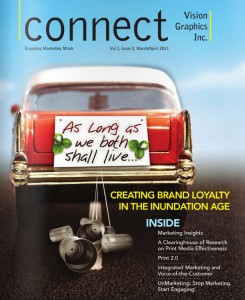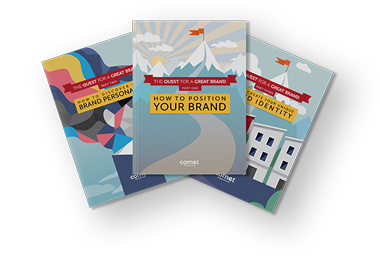 Our audiences are constantly being bombarded with streams of information. How do you raise your brand above the levels of inundation? In a recent article by Lorrie Bryan, called “Creating Brand Loyalty in an Inundation Age”, she interviewed key marketers to find out.
Our audiences are constantly being bombarded with streams of information. How do you raise your brand above the levels of inundation? In a recent article by Lorrie Bryan, called “Creating Brand Loyalty in an Inundation Age”, she interviewed key marketers to find out.
Make it Personal
Dr. Robert D. Winsor, professor of Marketing at Loyola Marymount University, says that in the age of information inundation, making a personal connection with customers is the key to developing a brand that pays long-term dividends. “You have to make a personal connection with customers through your brand. Your brand has to connect with people on some level: emotional, personal values, or a sense of personal identity or community,” suggests Dr. Winsor.
Dan Scott, CMO of Scott Kay, says that branding is more personal now than it has even been and for good reason. “Effective branding starts with an easy to understand, consistent and appropriate promise that connects your product or service to the want or needs of an individual,” remarked Scott. “The result is like a relationship; one must know the other and have trust, respect and an attraction on some level for it to work. Get personal and your brand will experience growth.”
Monopoly Power
Dr. Winsor explains: “Branding is the most important thing a business can do. Branding does two primary things that are of great value to a business. First, effective branding has the ability to provide a company with what economists call monopoly power. This means that through branding, a product can be differentiated from its competitors in a way that essentially eliminates competitors from consumer comparisons. If consumers perceive your product or service to have many available substitutes in the marketplace, your price is limited to whatever those other companies charge. In other words, branding allows you to charge higher prices because you have demonstrated to consumers that you are not merely a commodity. Branding is a primary driver of profits because it gives companies pricing power in their markets.”
The second benefit of branding is that it facilitates brand loyalty, meaning you don’t have to spend as much time or resources in selling and promotion efforts, because consumers already seek out your brand. “Thus,” says Winsor, “your costs are lower. Loyalty also allows you to charge higher prices, so again, effective branding directly leads to higher profits.”
Back Up With Substance
In an age where news travels quickly, brand equity can be quickly destroyed. Winsor says it is essential to back up your branding efforts with product and service substance. “Brand image, or selling or advertising might get you the first sale, but repeat purchases typically only come from positive customer experiences based on quality or performance.”
Advice from Scott: “Think of the benefits over features. Determine why your product/service is unique and, most of all, how it will affect a person’s life.”
Tell Your Story
With a rising multitude of social media channels, companies are trying to find the best way to tell their story. For these new online outlets, “The experience is different and the expectations are different,” says Chris Maloney, Senior VP of Marketing for Wells Fargo Advisors. “We are taking a test-and-learn approach and constantly evaluating customer responses.”
In an inundated world, branding still creates the kind of success that lasts.

